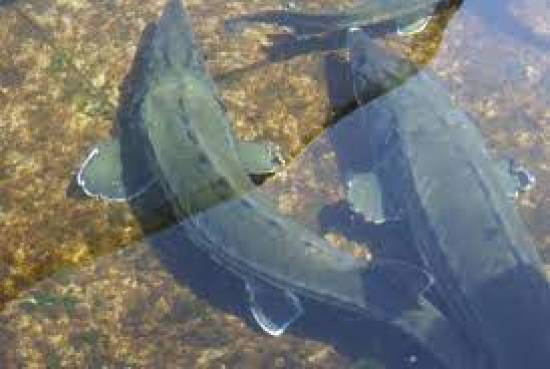'Catastrophic failure': 21,000 fish die at California university research center
Roughly 21,000 fish died at a northern California university’s aquatic research center overnight last week, according to a university statement.
“The loss appears to be due to chlorine exposure, to which fish are especially sensitive,” the statement from University California Davis read. Among the dead fish were green and white sturgeon as well as the endangered Chinook salmon.
They were being used to research “bioenergetics and environmental stressors” on different species, according to the statement, which said it would launch an investigation into how the center’s “process failed."
“We share the grief of the faculty, staff and students who worked to care for, study and conserve these animals,” the statement read. “We commit to understanding what happened and making changes to the facility so that we can ensure that this does not happen again.”
Chlorine is used as a decontaminant and is often found in tap water. That is why using tap water in fish tanks is not recommended without the use of a dechlorinator, according to the Florida Department of Agriculture.
An undated photo of green sturgeon at the Center for Aquatic Biology and Aquaculture at UC Davis.
The university believes that there was a failure in an external decontamination system that caused the chlorinated water to back up in the fish tanks, Andy Fell, a university spokesperson, told USA TODAY.
“These were currently, basically, all the fish they maintained in those outdoor tanks so this was a total loss for the center,” Fell said. “It was really a devastating thing to happen.”
None of the various other aquatic research facilities at UC Davis were affected by the situation, the university said in its statement. But it planned to assess the risk at some facilities that have potential for similar chlorine exposure.
The fish died at UC Davis’ Center for Aquatic Biology and Aquaculture where research aimed at protecting the state’s aquatic resources is conducted, according to the center’s website.
About 100 fish survived, according to Fell, and the university is providing mental health resources to the center’s staff./US Today


